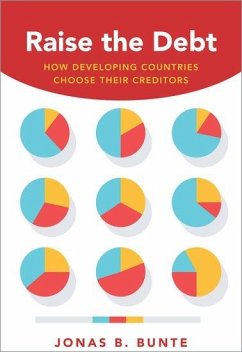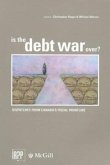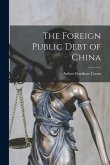Why do some governments borrow from China, while others borrow from the United States or the International Monetary Fund (IMF)? This book systematically explains how governments choose among competing loan offers. As the strings attached to loans vary across creditors, domestic interest groups prefer one type of creditor to the other. However, interest groups disagree about which creditor is preferable. Governments cater to whichever domestic interest group coalition is dominant by borrowing from the coalition's preferred creditor. The book offers evidence from Ecuador, Peru, and Colombia as well as an extensive statistical analysis. The results show that borrowing portfolios around the world reflect the relative strength of societal interest groups.
Hinweis: Dieser Artikel kann nur an eine deutsche Lieferadresse ausgeliefert werden.
Hinweis: Dieser Artikel kann nur an eine deutsche Lieferadresse ausgeliefert werden.









